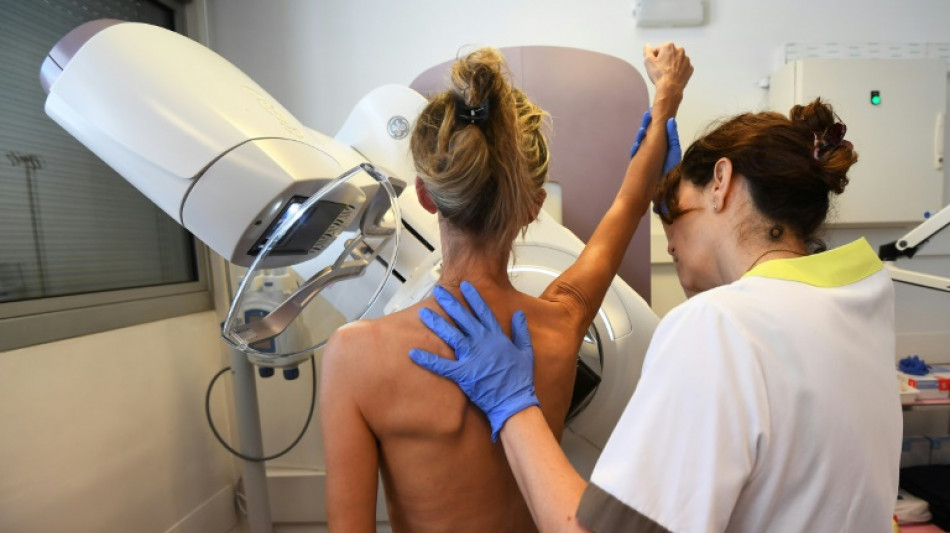
-
 Woman charged over Louvre heist tears up in court
Woman charged over Louvre heist tears up in court
-
Diomande dazzles as Leipzig go two points behind Bayern

-
 Auger-Aliassime downs Bublik to reach Paris Masters final
Auger-Aliassime downs Bublik to reach Paris Masters final
-
Villarreal crush Rayo to move second in La Liga

-
 Female suspect, 38, charged in Louvre heist: AFP
Female suspect, 38, charged in Louvre heist: AFP
-
US not sending any high-level officials to COP30

-
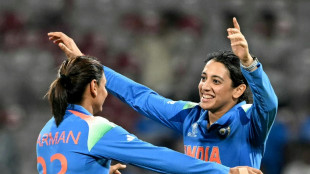 India captain Kaur sees World Cup final as possible turning point
India captain Kaur sees World Cup final as possible turning point
-
'Not out of the woods': What now for Britain's ex-prince Andrew?
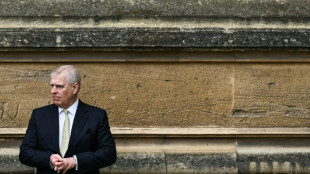
-
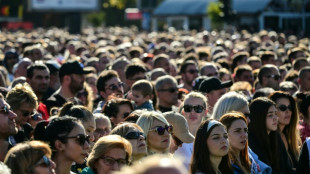 Tens of thousands of Serbians mark first anniversary of deadly train station collapse
Tens of thousands of Serbians mark first anniversary of deadly train station collapse
-
Tanzania president wins 98% in election as opposition says hundreds killed
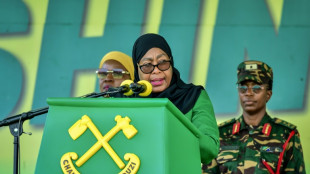
-
 Vieira 'no longer' manager of troubled Genoa: club
Vieira 'no longer' manager of troubled Genoa: club
-
Tanzania president wins 98% of votes after violence-marred polls
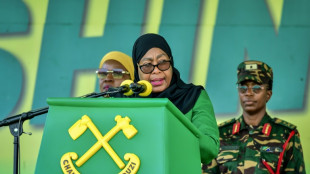
-
 South Korea hosts Xi as Chinese leader rekindles fraught ties
South Korea hosts Xi as Chinese leader rekindles fraught ties
-
England's batting exposed as New Zealand seal ODI series sweep

-
 Funk legend turned painter George Clinton opens show in Paris
Funk legend turned painter George Clinton opens show in Paris
-
Traditional mass wedding held in Nigeria to ensure prosperity
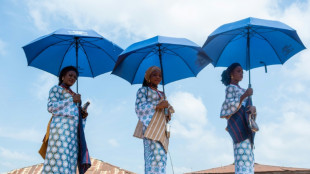
-
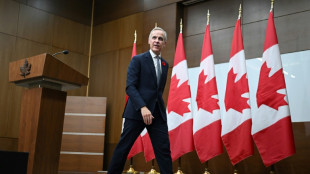 Canada PM says Xi talks 'turning point', apologises to Trump
Canada PM says Xi talks 'turning point', apologises to Trump
-
Iranian tech prodigies battle it out with robots
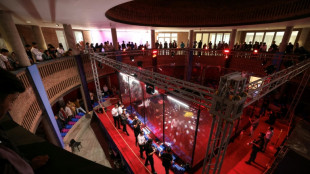
-
 Maldives begins 'generational ban' on smoking
Maldives begins 'generational ban' on smoking
-
Explorers seek ancient Antarctica ice in climate change study
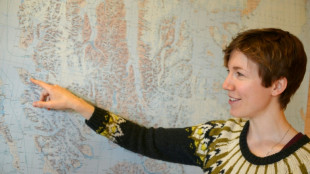
-
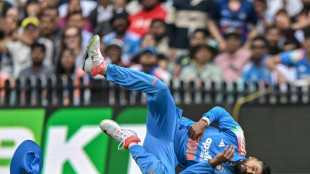 India's Iyer discharged from hospital after lacerated spleen
India's Iyer discharged from hospital after lacerated spleen
-
Serbia marks first anniversary of deadly train station collapse
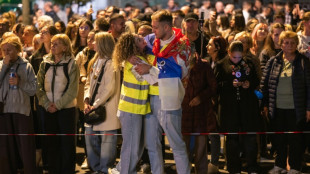
-
 Latin America weathered Trump tariffs better than feared: regional bank chief
Latin America weathered Trump tariffs better than feared: regional bank chief
-
Bangladesh dockers strike over foreign takeover of key port
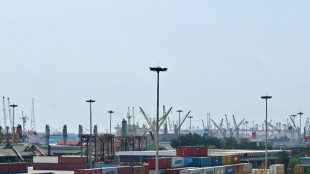
-
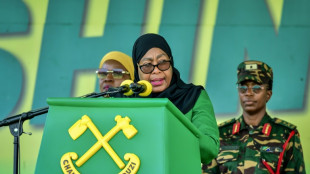 Tanzania president wins election landslide after deadly protests
Tanzania president wins election landslide after deadly protests
-
Dodgers, Blue Jays gear up for winner-take-all World Series game seven

-
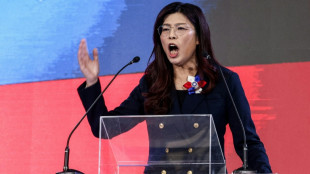 Taiwan's new opposition leader against defence spending hike
Taiwan's new opposition leader against defence spending hike
-
Dodgers hold off Blue Jays 3-1 to force World Series game seven

-
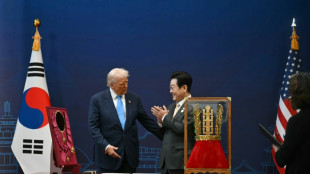 Crowns, beauty, fried chicken: Korean culture meets diplomacy at APEC
Crowns, beauty, fried chicken: Korean culture meets diplomacy at APEC
-
Panama wins canal expansion arbitration against Spanish company

-
 Myanmar fireworks festival goers shun politics for tradition
Myanmar fireworks festival goers shun politics for tradition
-
China to exempt some Nexperia orders from export ban
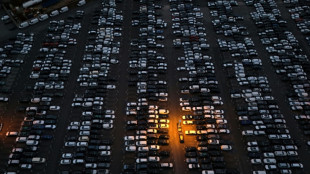
-
 Sixers suffer first loss as NBA Cup begins
Sixers suffer first loss as NBA Cup begins
-
China's Xi to meet South Korean leader, capping APEC summit
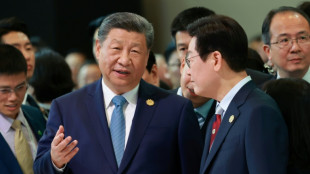
-
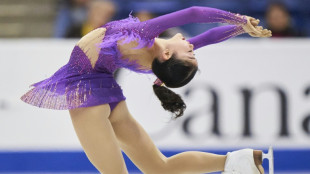 Japan's Chiba leads after Skate Canada short program
Japan's Chiba leads after Skate Canada short program
-
Finland's crackdown on undocumented migrants sparks fear
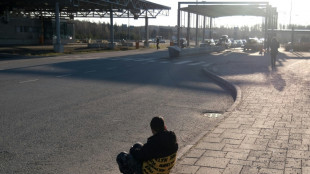
-
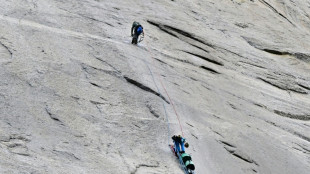 Climbers test limits at Yosemite, short-staffed by US shutdown
Climbers test limits at Yosemite, short-staffed by US shutdown
-
Gstaad gives O'Brien record 21st Breeders' Cup win

-
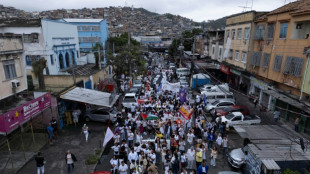 After the tears, anger on Rio's blood-stained streets
After the tears, anger on Rio's blood-stained streets
-
Sinner boosts number one bid in Paris, to face Zverev in semis

-
 Springer back in Toronto lineup as Blue Jays try to close out Dodgers
Springer back in Toronto lineup as Blue Jays try to close out Dodgers
-
Nationals make Butera MLB's youngest manager since 1972

-
 Guirassy lifts Dortmund past Augsburg ahead of Man City clash
Guirassy lifts Dortmund past Augsburg ahead of Man City clash
-
G7 says it's 'serious' about confronting China's critical mineral dominance
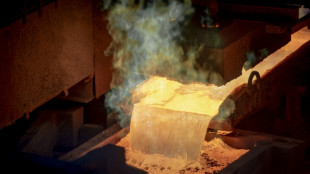
-
 NFL fines Ravens $100,000 over Jackson injury status report
NFL fines Ravens $100,000 over Jackson injury status report
-
NBA refs to start using headsets on Saturday

-
 Trump says Christians in Nigeria face 'existential threat'
Trump says Christians in Nigeria face 'existential threat'
-
French-Turkish actor Tcheky Karyo dies at 72

-
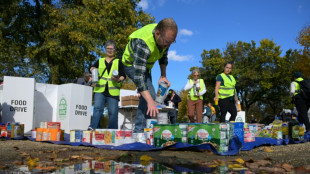 Food stamps, the bulwark against hunger for over 40 mn Americans
Food stamps, the bulwark against hunger for over 40 mn Americans
-
Trump keeps world guessing with shock nuclear test order


US breast cancer rate rising sharply even as deaths fall: study
Breast cancer rates are rising sharply in the United States, driven by increases among younger women and Asian Americans, a study said Tuesday.
The biennial report by the American Cancer Society found the number of cases grew by one percent each year from 2012 to 2021, even as the overall death rate continued its historic trend of decline, falling 44 percent from 1989 to 2022.
Breast cancer is the second most common cancer diagnosed among US women, and the second leading cause of death from cancer, after lung cancer.
Approximately one-in-eight women in the US will be diagnosed with invasive breast cancer in their lifetime and one-in-43, or two percent, will die from the disease.
Over the past decade, the report said, breast cancer rates grew faster for women under the age of 50 than those older -- 1.4 percent annually versus 0.7 percent annually -- for reasons that aren't immediately clear.
By race, Asian American women had the most rapid increase in incidence followed by Hispanic, which the paper said "may be related in part to the influx of new immigrants, who have elevated breast cancer risk."
Overall, the breast cancer mortality rate fell 44 percent from 33 deaths per 100,000 women in 1989 to 19 deaths per 100,000 in 2022, resulting in around 517,900 averted deaths.
But despite decades of medical advancements in treatment and earlier detection, the benefits have been felt unevenly.
Mortality has remained unchanged since 1990 among Native Americans, while Black women experience 38 percent more deaths than white women despite five percent lower cases.
The paper said these findings highlighted "disadvantages in social determinants of health" and "longstanding systemic racism and has translated to less access to quality care across the cancer continuum."
For example, although Black women report getting mammograms more than White women, "they are more likely to have screening at lower resourced facilities and/or those that are not accredited by the American College of Radiology," the study said.
The authors recommended increasing racial diversity in clinical trials as well as community partnerships that boost access to high-quality screening among underserved women.
In April, an influential US medical body recommended women should get screened for breast cancer every other year starting from the age of 40.
The US Preventive Services Task Force (USPSTF) had previously said that women in their 40s should make an individual decision about when to start mammograms based on their health history and reserved its mandatory recommendation for people turning 50.
T.Zimmermann--VB



